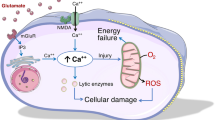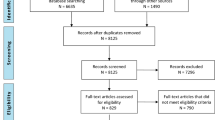Abstract
Purpose
Our objective was to examine the association between preoperative cognitive status and postoperative recovery from anesthesia.
Methods
We included patients (70–91 years old) from the Mayo Clinic Study of Aging who received general anesthesia and were admitted to the postanesthesia care unit from January 1, 2010 through April 30, 2018. Procedures were categorized according to patient’s preoperative cognitive status: cognitive impaired (CI) and cognitive unimpaired (CU). Perioperative records were reviewed and analyses were performed with generalized estimating equations.
Results
A total of 896 procedures from 611 patients were included, with 203 (22.7%) procedures in the CI group. Compared to CU procedures, CI procedures had higher rates of moderate–deep sedation during anesthesia recovery (52 [25.6%] vs. 103 [14.9%]; odds ratio [OR], 1.91; 95% CI, 1.30–2.80; P < 0.01), postoperative pulmonary complications (22 [10.8%] vs. 34 [4.9%]; OR, 2.36[1.22–4.54]; P = 0.01), and postoperative delirium (32 [16.2%] vs. 24 [3.5%]; OR, 5.33 [2.88–9.86]; P < 0.01). When moderate–deep sedation during anesthesia recovery was a covariate, both CI (OR, 3.02[1.60–5.70]; P < 0.01) and moderate–deep sedation (OR, 3.94[2.19–7.11]; P < 0.01) were associated with delirium. In multivariable analysis, postoperative pulmonary complications were associated with moderate–deep sedation (OR, 2.14[1.18–3.87]; P = 0 .01) but not with CI (OR, 1.49 [0.76–2.92]; P = 0 .25).
Conclusions
Cognitive impairment was associated with higher rates of moderate–deep residual sedation during anesthesia recovery and delirium, while moderate–deep sedation was associated with higher rates of pulmonary complications and delirium. We speculate that tailoring the anesthetic to facilitate faster emergence for CI patients could improve complication rates.
Similar content being viewed by others
Abbreviations
- CAM-ICU:
-
Confusion assessment method for the intensive care unit
- CI:
-
Cognitive impaired
- CU:
-
Cognitive unimpaired
- ICU:
-
Intensive care unit
- IQR:
-
Interquartile range
- MCI:
-
Mild cognitive impairment
- MCSA:
-
Mayo clinic study of aging
- OR:
-
Odds ratio
- PACU:
-
Postanesthesia care unit
- PAINAD:
-
Pain assessment in advanced dementia
- RASS:
-
Richmond agitation–sedation scale
- STROBE:
-
Strengthening the reporting of observational studies in epidemiology
References
Kassahun WT. The effects of pre-existing dementia on surgical outcomes in emergent and non-emergent general surgical procedures: assessing differences in surgical risk with dementia. BMC Geriatr. 2018;18(1):153.
Bell CC. DSM-IV: diagnostic and statistical manual of mental disorders. JAMA. 1994;272(10):828–9.
Petersen RC. Mild cognitive impairment as a diagnostic entity. J Intern Med. 2004;256(3):183–94.
Teeters DA, Moua T, Li G, Kashyap R, Biehl M, Kaur R, Gajic O, Boeve BF, St Louis EK, Petersen RC, Caples SM. Mild cognitive impairment and risk of critical illness. Crit Care Med. 2016;44(11):2045–51.
Sprung J, Roberts RO, Weingarten TN, Nunes Cavalcante A, Knopman DS, Petersen RC, Hanson AC, Schroeder DR, Warner DO. Postoperative delirium in elderly patients is associated with subsequent cognitive impairment. Br J Anaesth. 2017;119(2):316–23.
Fields A, Huang J, Schroeder D, Sprung J, Weingarten T. Agitation in adults in the post-anaesthesia care unit after general anaesthesia. Br J Anaesth. 2018;121(5):1052–8.
Huang J, Sprung J, Weingarten TN. Delirium following total joint replacement surgery. Bosn J Basic Med Sci. 2019;19(1):81–5.
Erdogan MA, Demirbilek S, Erdil F, Aydogan MS, Ozturk E, Togal T, Ersoy MO. The effects of cognitive impairment on anaesthetic requirement in the elderly. Eur J Anaesthesiol. 2012;29(7):326–31.
Roberts RO, Geda YE, Knopman DS, Cha RH, Pankratz VS, Boeve BF, Ivnik RJ, Tangalos EG, Petersen RC, Rocca WA. The Mayo Clinic Study of Aging: design and sampling, participation, baseline measures and sample characteristics. Neuroepidemiology. 2008;30(1):58–69.
Schulte PJ, Roberts RO, Knopman DS, Petersen RC, Hanson AC, Schroeder DR, Weingarten TN, Martin DP, Warner DO, Sprung J. Association between exposure to anaesthesia and surgery and long-term cognitive trajectories in older adults: report from the Mayo Clinic Study of Aging. Br J Anaesth. 2018;121(2):398–405.
Deljou A, Hedrick SJ, Portner ER, Schroeder DR, Hooten WM, Sprung J, Weingarten TN. Pattern of perioperative gabapentinoid use and risk for postoperative naloxone administration. Br J Anaesth. 2018;120(4):798–806.
Weingarten TN, Herasevich V, McGlinch MC, Beatty NC, Christensen ED, Hannifan SK, Koenig AE, Klanke J, Zhu X, Gali B, Schroeder DR. Predictors of delayed postoperative respiratory depression assessed from naloxone administration. Anesth Analg. 2015;121(2):422–9.
Sprung J, Roberts RO, Knopman DS, Olive DM, Gappa JL, Sifuentes VL, Behrend TL, Farmer JD, Weingarten TN, Hanson AC, Schroeder DR. Association of mild cognitive impairment with exposure to general anesthesia for surgical and nonsurgical procedures: a population-based study. Mayo Clin Proc. 2016;91(2):208–17.
Sprung J, Roberts RO, Knopman DS, Price LL, Schulz HP, Tatsuyama CL, Weingarten TN, Schroeder DR, Hanson AC, Petersen RC, Warner DO. Mild cognitive impairment and exposure to general anesthesia for surgeries and procedures: a population-based case-control study. Anesth Analg. 2017;124(4):1277–90.
Morris JC. The clinical dementia rating (CDR): current version and scoring rules. Neurology. 1993;43(11):2412–4.
Pfeffer RI, Kurosaki TT, Harrah CH Jr, Chance JM, Filos S. Measurement of functional activities in older adults in the community. J Gerontol. 1982;37(3):323–9.
Herasevich V, Kor DJ, Li M, Pickering BW. ICU data mart: a non-IT approach. A team of clinicians, researchers and informatics personnel at the Mayo Clinic have taken a homegrown approach to building an ICU data mart. Healthc Inform. 2011;28(11):42.
Flemons WW. Clinical practice. Obstructive sleep apnea. N Engl J Med. 2002;347(7):498–504.
Barr J, Fraser GL, Puntillo K, Ely EW, Gelinas C, Dasta JF, Davidson JE, Devlin JW, Kress JP, Joffe AM, Coursin DB. Clinical practice guidelines for the management of pain, agitation, and delirium in adult patients in the intensive care unit. Crit Care Med. 2013;41(1):263–306.
Charlson M, Szatrowski TP, Peterson J, Gold J. Validation of a combined comorbidity index. J Clin Epidemiol. 1994;47(11):1245–51.
Cavalcante AN, Sprung J, Schroeder DR, Weingarten TN. Multimodal analgesic therapy with gabapentin and its association with postoperative respiratory depression. Anesth Analg. 2017;125(1):141–6.
Gali B, Whalen FX, Gay PC, Olson EJ, Schroeder DR, Plevak DJ, Morgenthaler TI. Management plan to reduce risks in perioperative care of patients with presumed obstructive sleep apnea syndrome. J Clin Sleep Med. 2007;3(6):582–8.
Gali B, Whalen FX, Schroeder DR, Gay PC, Plevak DJ. Identification of patients at risk for postoperative respiratory complications using a preoperative obstructive sleep apnea screening tool and postanesthesia care assessment. Anesthesiology. 2009;110(4):869–77.
Warden V, Hurley AC, Volicer L. Development and psychometric evaluation of the Pain assessment in advanced dementia (PAINAD) scale. J Am Med Dir Assoc. 2003;4(1):9–15.
Inouye SK, van Dyck CH, Alessi CA, Balkin S, Siegal AP, Horwitz RI. Clarifying confusion: the confusion assessment method. A new method for detection of delirium. Ann Intern Med. 1990;113(12):941–8.
Harris MJ, Brovman EY, Urman RD. Clinical predictors of postoperative delirium, functional status, and mortality in geriatric patients undergoing non-elective surgery for hip fracture. J Clin Anesth. 2019;58:61–71.
Lee HB, Mears SC, Rosenberg PB, Leoutsakos JM, Gottschalk A, Sieber FE. Predisposing factors for postoperative delirium after hip fracture repair in individuals with and without dementia. J Am Geriatr Soc. 2011;59(12):2306–13.
Moschinski K, Kuske S, Andrich S, Stephan A, Gnass I, Sirsch E, Icks A. Drug-based pain management for people with dementia after hip or pelvic fractures: a systematic review. BMC Geriatr. 2017;17(1):54.
Neufeld KJ, Hayat MJ, Coughlin JM, Huberman AL, Leistikow NA, Krumm SK, Needham DM. Evaluation of two intensive care delirium screening tools for non-critically ill hospitalized patients. Psychosomatics. 2011;52(2):133–40.
Funding
This study was supported by NIH grants P50 AG016574 and U01 AG006786 (R.C.P), the Robert H. and Clarice Smith and Abigail van Buren Alzheimer’s Disease Research Program, the Rochester Epidemiology Project (R01 AG034676, principal investigators: Walter A. Rocca, MD, and Jennifer St. Sauver, PhD), and the Mayo Clinic Center for Translational Sciences Activities, grant No. UL1 TR000135 from the National Center for Advancing Translational Sciences. The content is solely the responsibility of the authors and does not necessarily represent the official views of the NIH. Financial support for statistical analyses was provided by the Department of Anesthesiology and Perioperative Medicine, Mayo Clinic.
Author information
Authors and Affiliations
Contributions
SCK, MLL, and AD collected, analyzed, and interpreted the data and helped to write the manuscript; DSK and RCP helped design the study and conducted revision for important intellectual content; DRS helped design the study, analyze the data, and conducted revision for important intellectual content; JS and TNW designed the study, analyzed and interpreted the data, and helped to write the manuscript.
Corresponding author
Ethics declarations
Conflict of interest
D.S.K previously served as deputy editor for the journal Neurology, and he serves on a Data Safety Monitoring Board for Lundbeck and for the Dominantly Inherited Alzheimer Network Trials Unit. He is an investigator in clinical trials sponsored by Biogen, Eli Lilly and Co, University of Southern California, and TauRx Therapeutics Ltd, and he receives research support from the National Institutes of Health (NIH). R.C.P is the chair of Data Monitoring Committees for Pfizer Inc, GE Healthcare, and Janssen Alzheimer Immunotherapy, and he has served as a consultant for F. Hoffmann–La Roche AG; Biogen; Eisai Co, Ltd; Merck and Co, Inc; and Genentech, Inc. He receives royalties from sales of the book Mild Cognitive Impairment (Oxford University Press). T.N.W serves as a consultant to Medtronic in the role of chair of the Clinical Endpoint Committee for the Prodigy trial, and he has received research support (study equipment) from Respiratory Motion, Inc, and unrestricted investigator-initiated grants from Merck and Co, Inc, (completed) and Baxter International (completed). J.S, S.C.K, and M.L.L have nothing to disclose.
Ethical statement
In this retrospective study of elderly adults enrolled in the Mayo Clinic Study of Aging whose preoperative cognitive status was known, preoperative cognitive impairment was associated with moderate–deep sedation during anesthesia recovery. Both cognitive impairment and moderate–deep sedation were associated with postoperative delirium.
Additional information
Publisher's Note
Springer Nature remains neutral with regard to jurisdictional claims in published maps and institutional affiliations.
About this article
Cite this article
Kruthiventi, S.C., Laporta, M.L., Deljou, A. et al. Preoperative cognitive impairment associated with oversedation during recovery from anesthesia. J Anesth 34, 390–396 (2020). https://doi.org/10.1007/s00540-020-02764-0
Received:
Accepted:
Published:
Issue Date:
DOI: https://doi.org/10.1007/s00540-020-02764-0




